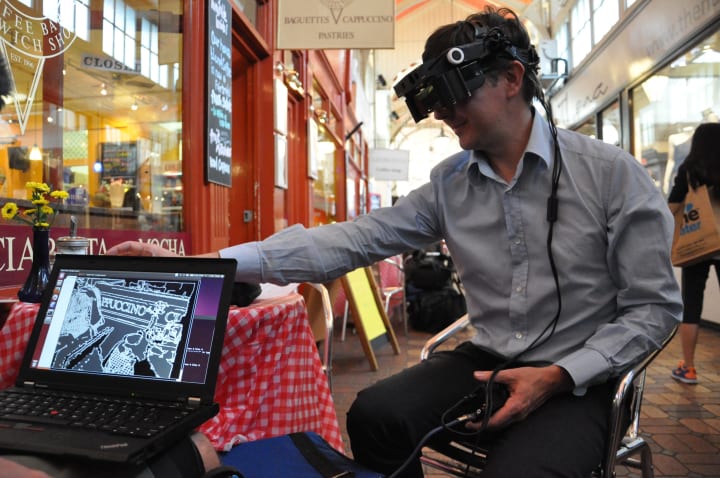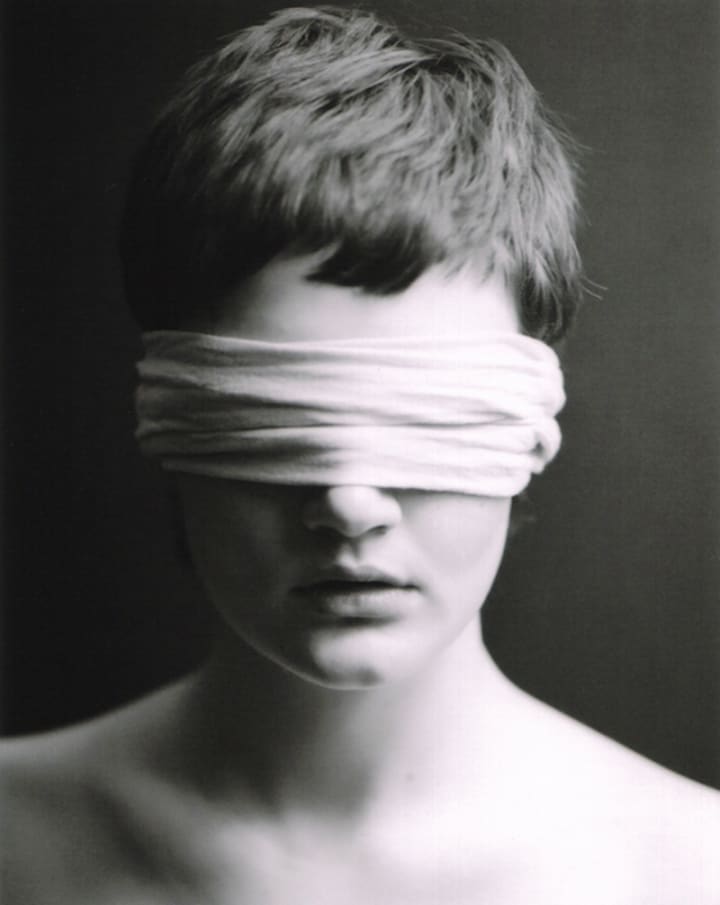Can Technology Heal Blindness?
While it is always possible that in a hundred years we can automate all of our bodies, many scientists are asking now "Can technology heal blindness?"

While the world and technology has become more accommodating to the visually impaired, blindness remains a huge issue for many people who either used to be able to see before losing their vision or never saw at all. While braille and seeing eye dogs have helped, many scientists believe that assistive technologies can be developed that can further help the blind.
But while some scientists are developing sensors to warn blind people of obstacles or devices that can read the written word aloud, other scientists are coming up with a more radical approach: to restore vision to those without. While it is always possible that in a hundred years we can automate all of our bodies, many scientists are asking now "Can technology heal blindness?"
What is Blindness?

The term "visually impaired" may sound like a politically correct way to refer to a blind person, but it's actually far more accurate of a description. True blindness is actually fairly uncommon. Most blind people can see "something," but the information transmitted to the brain just isn't enough to actually be much use. This raw, unfocused visual data usually comes in the form of light or vague colors.
However, true blindness occurs if the optic nerve that links the eyes to the brain is damaged. This means that no signals are going from the eyes to the brain, resulting in complete blindness. Not even darkness, but just a constant state of nonseeing. It's hard for a visually capable person of imagining this. It isn't like closing your eyes, because, in these cases, you're still seeing something: the inside of your eyelids.
This means that technology can do one of two things if people are seeking new ways that technology can heal blindness. For the visually impaired, scientists will need to figure out a way to refine the visual data reaching the brain to make it capable of restoring "sight," or to completely augment the structure of the eyes or nerve cells so that visual data actually reaches the brain.
Headgear

With the advent of devices like the Oculus Rift and Google Glass, technologically advanced eye pieces have become something of a popular item. It seems inevitable that someone would augment the devices so that, eventually, they can grant sight to the visually impaired (again, not truly blind).
Dr. Stephen Hicks of Oxford University presented his unique headset that, thanks to the cameras situated around the eye pieces, can interpret visual data, before converting it to a digitized image that a visually impaired person can process with their eyes alone.
In many ways, these function like glasses for those with very weak eyes. This sort of technology can heal blindness, in the same way that glasses can heal near-sightedness. You aren't fixing the problem, but you are using a noninvasive device to step around the problem.
But True Blindness?

So we have devices that to help the visually impaired, but what about true blindness? Optic nerves being severed. Is it possible to fix that?
Actually, yes. And it involves a device you wear on your face.
The EyeCane is a device developed by the Lab for Brain and Multi-sensory Research at the Hebrew University of Jerusalem. The device (shaped like glasses) does not use visual data, but, rather, interprets physical objects in front of the wearer, before relaying the data back to the glasses, which then converts the visual data into auditory data. It creates a series of sounds that triggers visual understanding in the brain. It cuts out the eyes entirely. The ears see what lays before them.
But what about true optic nerve damage? Can technology heal blindness when the source of the blindness is genuine optic nerve damage?
Hard Truths

At the present time, no.
Scientists are studying cellular regeneration. They are determining ways to organically regenerate flesh and nerve tissue using a person's own body, the same way cuts heal in the skin.
But a the present time, a severed optic nerve is severed. Forever.
My hope is that in five years this article is outdated. I want this article to be wrong. I want optic nerves to either be organically or mechanically augmented to heal. I want to see technology heal blindness in its entirety, but, at the present time, we simply can't.
About the Creator
Anthony Gramuglia
Obsessive writer fueled by espresso and drive. Into speculative fiction, old books, and long walks. Follow me at twitter.com/AGramuglia






Comments
There are no comments for this story
Be the first to respond and start the conversation.